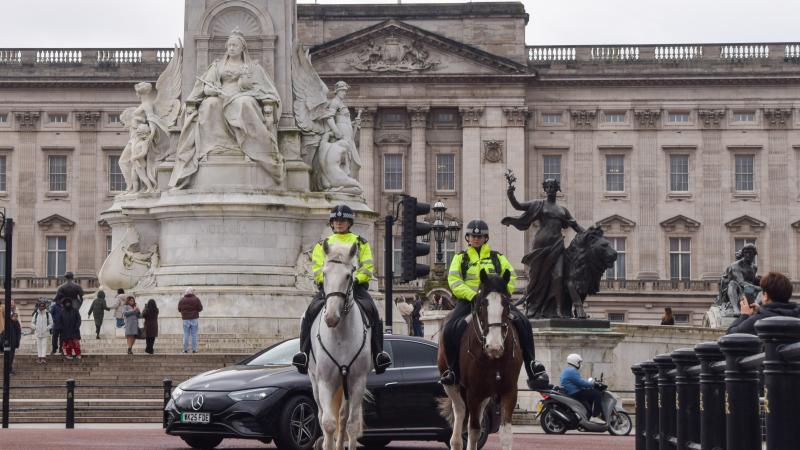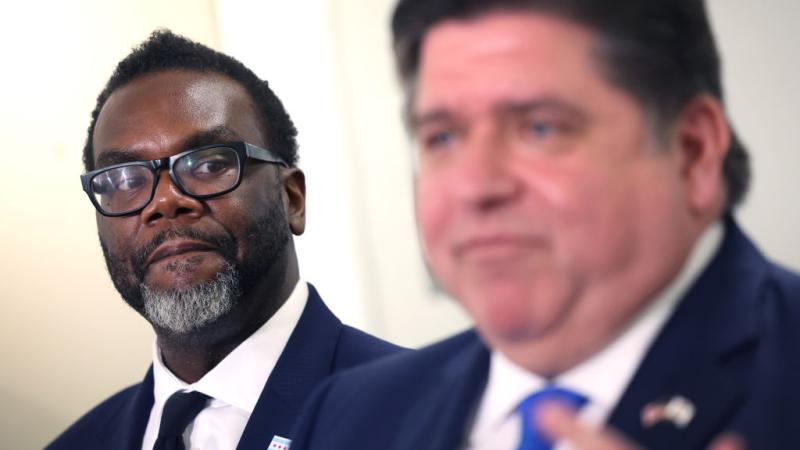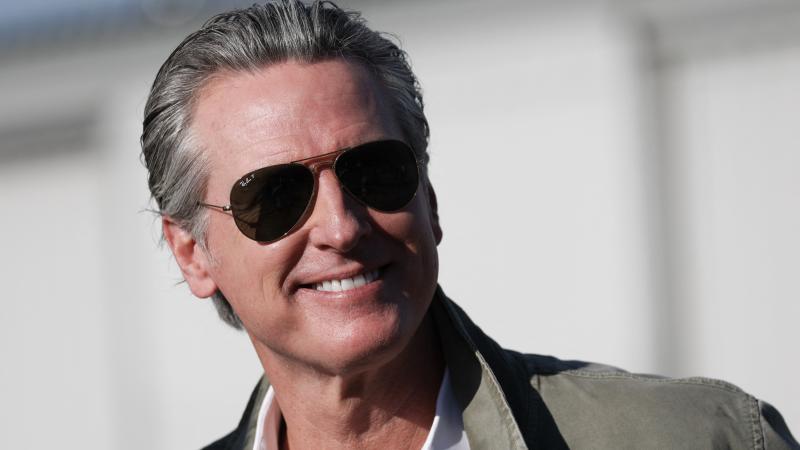Law student government rejects free speech group because debate can cause 'real harm'
This marks the second time in a week that Emory Law School has become embroiled in a free-speech controversy involving a student-run organization.
For the second time recently, Emory Law School in Atlanta is dealing with a controversy involving a student-run organization seeking to squelch debate in the name of preventing harmful speech.
Its Student Bar Association, the law school equivalent of student government, denied a charter to the Emory Free Speech Forum (EFSF) in part based on the "lack of mechanisms in place to ensure respectful discourse and engagement" at its events, such as a moderator.
This could cause a "precarious environment" and "potential and real harm" on fraught topics such as race and gender, "when these issues directly affect and harm your peers' lives in demonstrable and quantitative ways," the rejection letter said.
A charter comes with eligibility for university funding and the use of university resources. Given Emory Law's "well-established promotion of free speech values" and EFSF's "overlap" with other chartered groups, the letter said, "we fail to see a need" to fund it.
A week earlier, three law professors pulled their essays from a forthcoming issue of the Emory Law Journal in response to student editors ordering one of them to remove "insensitive language" from a "hurtful and unnecessarily divisive" critique of the concept of systemic racism.
The Foundation for Individual Rights in Education raised concerns with the SBA last fall when the charter was rejected, but the student government didn't respond, according to FIRE.
The civil liberties group asked the Emory Law administration to intervene Jan. 10, claiming the SBA violated multiple policies and EFSF meets all criteria for recognition, while noting Emory gets FIRE's highest rating for speech-friendly policies.
The law school told Just the News Jan. 14 there's nothing it can do right now, citing the university's newly announced COVID-19 moratorium on chartering new student organizations.
"The SBA therefore will not have an opportunity to consider providing any new proposed student groups with temporary charters under the applicable law school and university guidelines until March 2022, pending further developments," Associate Dean for Marketing & Communication Susan Clark wrote in an email.
"The law school does not anticipate the need to develop alternative recognition procedures for student groups but would do so if necessary and appropriate to comply with law school and university policies," she said.
A Jan. 6 update to the event planning guide does not promise that chartering will resume in March, however. The moratorium "will be revisited no earlier than March 15, 2022," it reads. "If and when this opens, interested parties will need to follow the chartering entity's guidelines."
"Emory's statement does not deny that its Student Bar Association abused its power to reject the Emory Free Speech Forum, merely because it didn't like what this group stood for," FIRE Program Officer Zach Greenberg told Just the News.
"Long before Emory imposed a moratorium on recognizing groups, the university allowed this viewpoint-discriminatory denial of rights to occur," he said. "Rather than refuse to grant all student groups the benefits of university recognition, Emory should follow its free speech policies by granting a charter to the Emory Free Speech Forum."
FIRE said in a blog post it plans to file a complaint with the University Senate's Open Expression Committee, which investigates complaints "through mediation and informal conflict resolution," advises administrators and interprets policy but has no "disciplinary authority."
The committee is composed of faculty, staff and students, and it has seven listed opinions going back to 2016, three of which concerned campus election activity that year. The dean of campus life — who is tasked with enforcing the "Respect for Open Expression Policy" — is an observer.
Emory Law's student handbook classifies violation of its Respect for Open Expression Policy as punishable misconduct, meaning SBA cannot deny recognition to a student group "because of disagreement with its mission or the viewpoints that it represents."
An Emory law professor told Just the News the SBA had committed a "really egregious violation of the free-speech policy and other law school and university policies."
While administrators and faculty are "pretty reasonable ... student government and many student organizations have been taken over by radicals who think free-speech norms don't apply to anything but the most socially progressive speech," the professor said, requesting anonymity.
UCLA law professor Eugene Volokh, a First Amendment expert, said no other student group was required to use moderators as a condition of SBA recognition.
"It seems clear that the SBA's rationale stems from the student government officials' concern about particular viewpoints that they expect the group to include on those topics," he wrote in a blog post.
FIRE shared with Just the News the minutes from the SBA meeting where EFSF, with 20 members and a faculty advisor, sought the charter.
SBA members asked several viewpoint-related questions, paraphrased as: "How do we regulate discourse, so it is not harmful?" "Will you bring controversial speakers?" "Will there be any mediator?"
Others asked why the club needed funding "to talk" when it could do free events online.
"Free of expression [sic] policy for who? Very few individual[s] of color," one member was paraphrased as saying.
The conversations the club plans to have "are not very ~chill~," another conveyed.
"Unsure what their message is," a third said. "Very contradictory. Emory already has shown they prioritize free speech and expression."
SBA's claim that the nonpartisan, debate-focused EFSF is too similar to the right-leaning Federalist Society and left-leaning American Constitution Society "strains credulity," FIRE said.
Emory Law is contractually bound to honor its promises, including the open expression policy, which both recognizes "Constitutional rights of free speech and assembly" and emphasizes that "[c]ivility and mutual respect" cannot be invoked to limit speech on "controversial social and political issues," the civil liberties group said.
The rejection "exemplifies the exact reason why this club must exist," EFSF President Michael Reed-Price said in FIRE's blog post. "The SBA need not agree with our ideas, they must merely tolerate our right to express them."
SBA President Jadyn Taylor, to whom FIRE's letter is addressed, didn't respond to queries. Just the News couldn't find contact information for the SBA as a whole, and Taylor's predecessor Maggie Clark said she didn't have it.
The Facts Inside Our Reporter's Notebook
Documents
Links
- student editors ordering one of them to remove "insensitive language"
- raised concerns with the SBA
- Emory Law administration to intervene
- Emory gets FIRE's highest rating
- blog post
- Open Expression Committee
- The committee is composed
- Respect for Open Expression Policy
- Emory Law's student handbook
- blog post
















